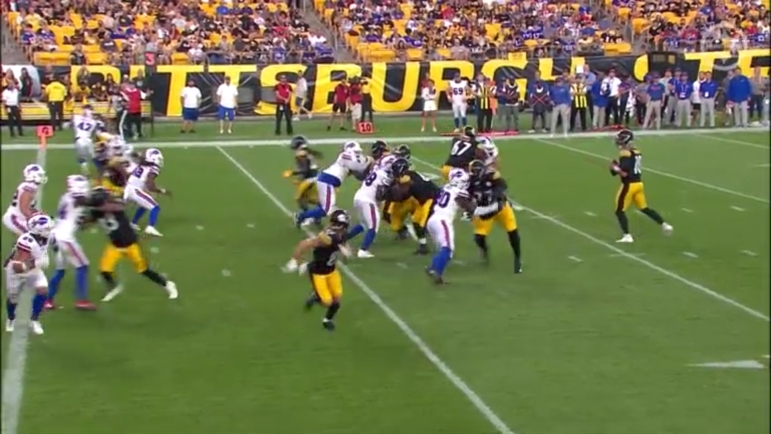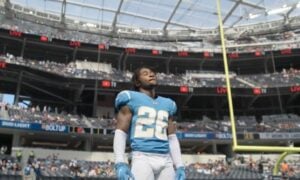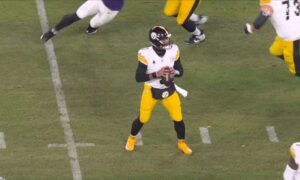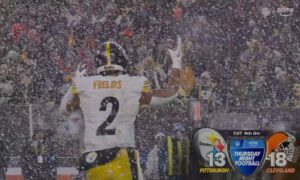The number of people who complained last year about nepotism being the reason why the Pittsburgh Steelers drafted Connor Heyward has dwindled substantially. After contributing more extensively as a rookie than anticipated, the former sixth-round draft pick seems like a player for whom the offense has legitimate plans.
He has continued his productive offseason into the preseason games, coming off a game against the Buffalo Bills in which he caught a touchdown pass from three yards out, a week earlier claiming a 24-yard explosive reception.
It’s fair to question, however, whether that touchdown should have even counted in the first place. Technically, by the rules, it should not have. Engaged as a blocker from the 3-yard line up to the goal line before releasing, it could have been flagged for offensive interference.
How does offensive coordinator Matt Canada feel about that? Asked if he felt it was legal or pushed the limited of offensive pass interference, he told reporters simply, “They called it a touchdown”, via the team’s website. “That’s my answer”.
Fair enough, and generally, a coach is not going to comment about the legality of a play whether it was positive for their team or negative. Rarely does anything positive ever come out of a team commenting about the rules or the officiating. But the follow-up was fair. And the response was reasonable, as well, in context.
Asked if Heyward will be coached to conduct the plan in the same manner in a regular-season game, Canada responded simply, “He will be coached to score touchdowns”. Again, I cannot blame him for not commenting on it further.
But as outside observers, we can. The Steelers cannot run these sorts of plays this way in the regular season. The officials look closely at downfield blocks beyond the allotted limit for offensive pass interference penalties. There were 63 such penalties called a year ago, three of which were on the Steelers, many for illegal downfield blocking by a receiving target. They were also among the league leaders in drawing ineligible receiver down the field penalties, so there’s a pattern here.
“It is pass interference by either team when any act by a player more than one yard beyond the line of scrimmage significantly hinders an eligible player’s opportunity to catch the ball”, the official rule reads. “Offensive pass interference rules apply from the time the ball is snapped until the ball is touched”.
Though the ball was not even in the air by the time Heyward disengaged, there is also a list of prohibited acts that result in pass interference while the ball is in the air. That includes “Contact by a player who is not playing the ball that restricts the opponent’s opportunity to make the catch”.
As a reminder, defensive pass interference only exists once the ball is thrown (prior to the pass, it would be another penalty); offensive pass interference exists from the time of the snap to the completion of the first touch of a pass. There’s also this very explicit bit:
“Blocking more than one yard beyond the line of scrimmage by an offensive player prior to a pass being thrown is offensive pass interference”.
So yeah, while he may not say it, Canada had better be teaching Heyward and the rest of his players not to run the play this way. If you’re on the 3-yard line, you cannot block a player into the end zone.








